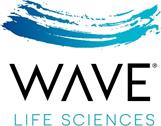Investor Conference Call and Webcast
Wave management will host an investor conference call today at 8:30 a.m. ET to discuss the company’s second quarter 2022 financial results and provide a business update. The webcast of the conference call may be accessed by visiting “Events” on the investor relations section of the Wave Life Sciences corporate website: ir.wavelifesciences.com/events-and-presentations.
Analysts planning to participate during the Q&A portion of the live call can join the conference call at the following audio conferencing link: available here. It is recommended that participants register at least 15 minutes in advance of the call. Once registered, participants will receive the dial-in information.
Following the live event, an archived version of the webcast will be available on the Wave Life Sciences website.
About the FOCUS-C9 Clinical Trial
The FOCUS-C9 trial is an ongoing, global, multicenter, randomized, double-blind, placebo-controlled Phase 1b/2a clinical trial to assess the safety and tolerability of single- and multiple-ascending intrathecal doses of WVE-004 for people with C9-ALS and/or C9-FTD. Additional objectives include measurement of poly(GP) DPR proteins in the cerebrospinal fluid (CSF), plasma and CSF pharmacokinetics (PK), and exploratory biomarkers and clinical outcomes. The FOCUS-C9 trial is designed to be adaptive, with dose escalation and dosing frequency being guided by an independent committee.
In an initial data analysis, reductions in poly(GP) were observed across all active treatment groups (10 mg, n=2 patients; 30 mg, n=4 patients; 60 mg, n=3 patients), reaching statistical significance versus placebo (n=3 patients) after single 30 mg doses, with a 34% reduction in poly(GP) at day 85 (p=0.011). At the time of analysis, none of the patients dosed with 60 mg had reached day 85. As the poly(GP) reduction in the 30 mg single dose cohort does not appear to have plateaued, Wave will extend the observation period from approximately three months (85 days) to approximately six months to identify the maximum reduction of poly(GP) and duration of effect of low single doses. Based on the durability and potency observed in the 30 mg cohort, FOCUS-C9 has been adapted to include additional patients receiving 20 mg and 30 mg single doses of WVE-004. Adverse events (AEs) were balanced across treatment groups, including placebo, and were mostly mild to moderate in intensity. Four patients (including one on placebo) experienced severe and/or serious adverse events; three were reported by the investigators to be related to ALS or administration, and one was reported by the investigator to be related to study drug. There were no treatment-associated elevations in CSF white blood cell counts or protein and no other notable laboratory abnormalities were observed.
Support for FOCUS-C9 is provided by the Alzheimer’s Drug Discovery Foundation.
About Amyotrophic Lateral Sclerosis and Frontotemporal Dementia
Amyotrophic lateral sclerosis (ALS) is a fatal neurodegenerative disease in which the progressive degeneration of motor neurons in the brain and spinal cord leads to the inability to initiate or control muscle movement. People with ALS may lose the ability to speak, eat, move and breathe. ALS affects as many as 20,000 people in the United States.
Frontotemporal dementia (FTD) is a fatal neurodegenerative disease in which progressive nerve cell loss in the brain’s frontal lobes and temporal lobes leads to personality and behavioral changes, as well as the gradual impairment of language skills. It is the second most common form of early-onset dementia after Alzheimer’s disease in people under the age of 65. FTD affects as many as 70,000 people in the United States.
A hexanucleotide repeat expansion (G4C2) is the most common known genetic cause of the sporadic and inherited forms of ALS and FTD. The expansion leads to production of modified sense and antisense transcripts that can form nuclear RNA foci and encode dipeptide protein repeats (DPRs), which are believed to drive disease pathology. Additionally, the G4C2 expansion can decrease expression of C9orf72 protein, affecting regulation of neuronal function and the immune system.
